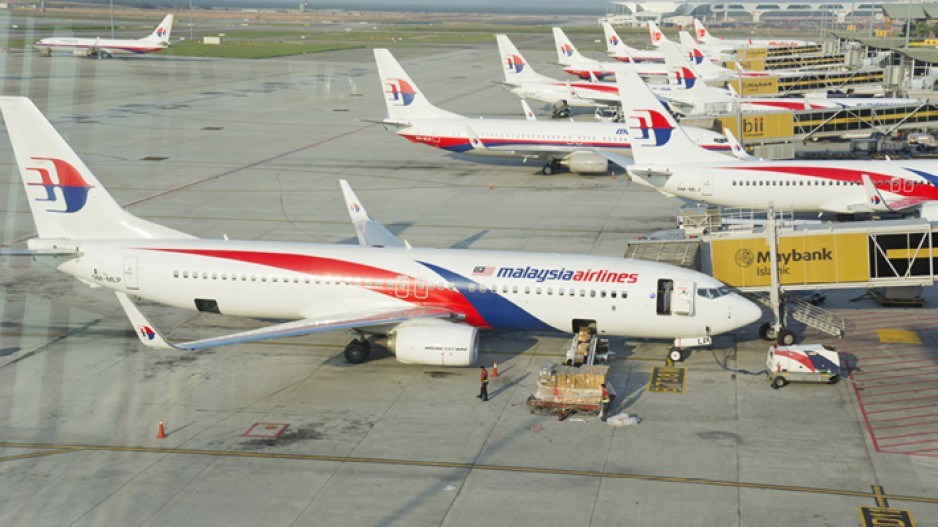The disappearance of Malaysia Airlines flight MH370 and the abysmal public performance of officials handling the incident will have damaging economic repercussions for both the company and the country.
For Malaysia Airlines, the economic penalty will most likely be temporary as travellers, the story of the Boeing 777 with 239 people on board still fresh in their minds, naturally turn to other carriers when making bookings.
For Malaysia itself, the downturn in the country’s reputation may well be more lasting and serious. The bumbling and secretive response to the crisis by officials and politicians is reinforcing the growing international perception of the Malaysian government as opaque and incompetent.
The impact on the airline will be influenced by what is uncovered by the flight investigation.
The Boeing 777 has a fine safety record, but if, for example, investigators find problems with Malaysia Airlines’ maintenance procedures, the effects could be more serious.
And this disappearance comes at a bad time for Malaysia Airlines, which, despite shelves full of awards for its cabin service, is facing tough economic challenges.
The state-controlled airline has been losing money for years and has been unable to respond to competition from low-cost carriers, especially AirAsia, founded in 2001 by Malaysian businessman Tony Fernandes.
In 2011 Malaysia Airlines brought in power company veteran Ahmad Jauhari Yahya to be the chief executive and turn the company around.
He has had to battle the airline’s government-inspired culture of stodgy and hard-to-move bureaucracy and a powerful union bent on blocking changes that might erode its members’ privileges.
The massive distraction of flight MH370 is going to make his job much more difficult. Malaysia Airlines’ share prices have been on a downward slide for several years, and an accelerated plunge after the March 8 disappearance of the airliner reflects the increasing lack of investor confidence in the company. For Malaysia itself, the way government officials and politicians handled the disappearance of MH370 has been a public relations disaster. Particularly damaging was the delay of nearly a week before Malaysian officials admitted the massive international search going on east of Malaysia in the South China Sea was probably in the wrong place.
Whether this delay was caused by incompetence or nationalistic embarrassment that the country’s military and air traffic control systems had little idea of what had happened to the plane is unclear and, in the wider scheme of things, probably irrelevant.
This, and all the evidence of lack of co-ordination among the various Malaysian military and civilian departments that emerged during the course of the search, has added to the government’s already bad reputation for competence and openness.
The ruling United Malays National Organization party, now led by Prime Minister Najib Razak, has been in power since independence from Britain in 1957, and the inevitable embedding of the assumption of the right to rule shows in all aspects of the administration.
Corruption is deeply entrenched, politicians exhibit little or no sense of duty to be accountable, the courts are biddable, and the media, with a few notable exceptions, sees itself as a chorus of praise singers.
A stark picture of some of the institutional problems in Malaysia’s economic culture was presented by The Economist magazine two weeks ago. It published a new ranking of “crony capitalism” in 23 countries, which looked at the prevalence of state monopolies and the number of billionaires they have created.
Malaysia came third in the magazine’s ranking, after Hong Kong and Russia. •
Strong economic ties will prevent lasting rift between China and Malaysia over disappearance of airliner
The greatest damage to Malaysia’s international reputation stemming from its inept handling of the disappearance and likely crash of Malaysia Airlines flight MH370 is undoubtedly in China.
Of the 239 people on the flight from Kuala Lumpur to Beijing, 150 were Chinese citizens. It was among the families of these people and the public statements of Chinese officials that exasperation and outrage were most evident at the incompetence and obfuscation demonstrated by the Malaysians.
Last week Chinese state media quoted a member of the Malaysia-China Chamber of Commerce, Zheng Shuixing, saying he expects there to be a significant negative impact on bilateral relations. Zheng said there are already signs that tourism is being affected, with travel agencies in many Chinese cities reporting people cancelling planned visits to Malaysia.
However, the economic and political relationship between Malaysia and China is one of the most significant in Asia. While there will be coolness for a while, and perhaps even some studied retribution by China, it is in the interests of both nations that there be no lasting division.
In 1974, Malaysia was the first southeast Asian nation to recognize the Communist Party government of China. The relationship has blossomed so that Malaysia is now China’s third most important trade partner in Asia after Japan and South Korea. Two-way trade last year was $106 billion and is expected to reach $160 billion by 2017.
A reflection of this interdependence is that Malaysia has always been much more circumspect than its neighbours in reacting to China’s territorial claims and ambitions in the South China Sea. Even when, in January, sailors on four Chinese warships visiting James Shoal, well within Malaysia’s exclusive economic zone in the South China Sea, took a well-publicized oath to defend what they claimed as Chinese territory, Malaysia’s official response was to deny the incident ever happened.




